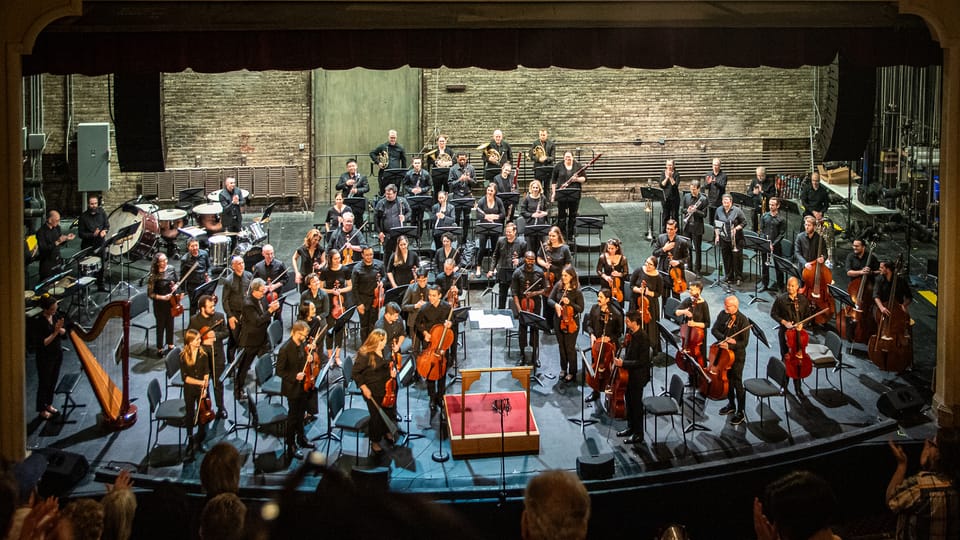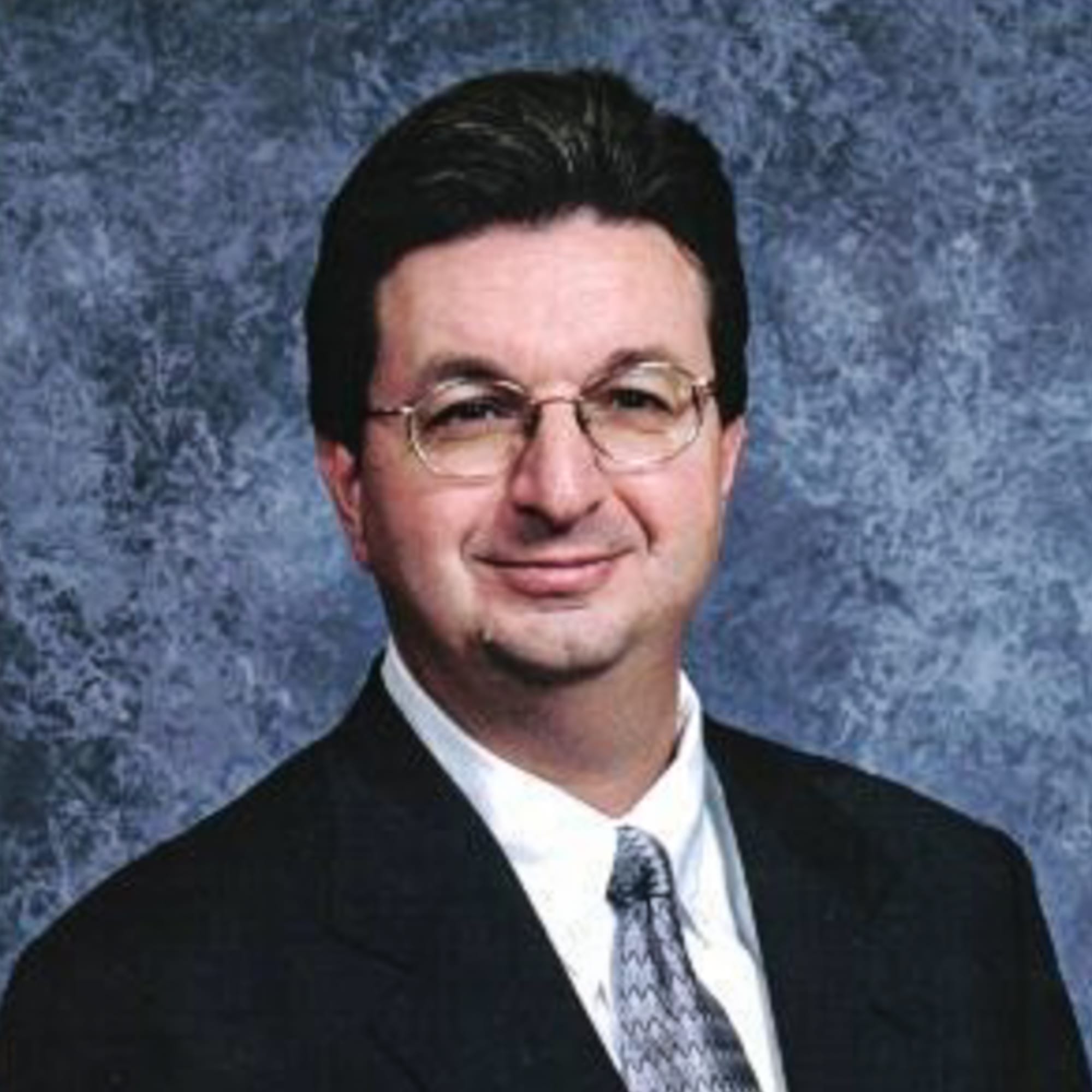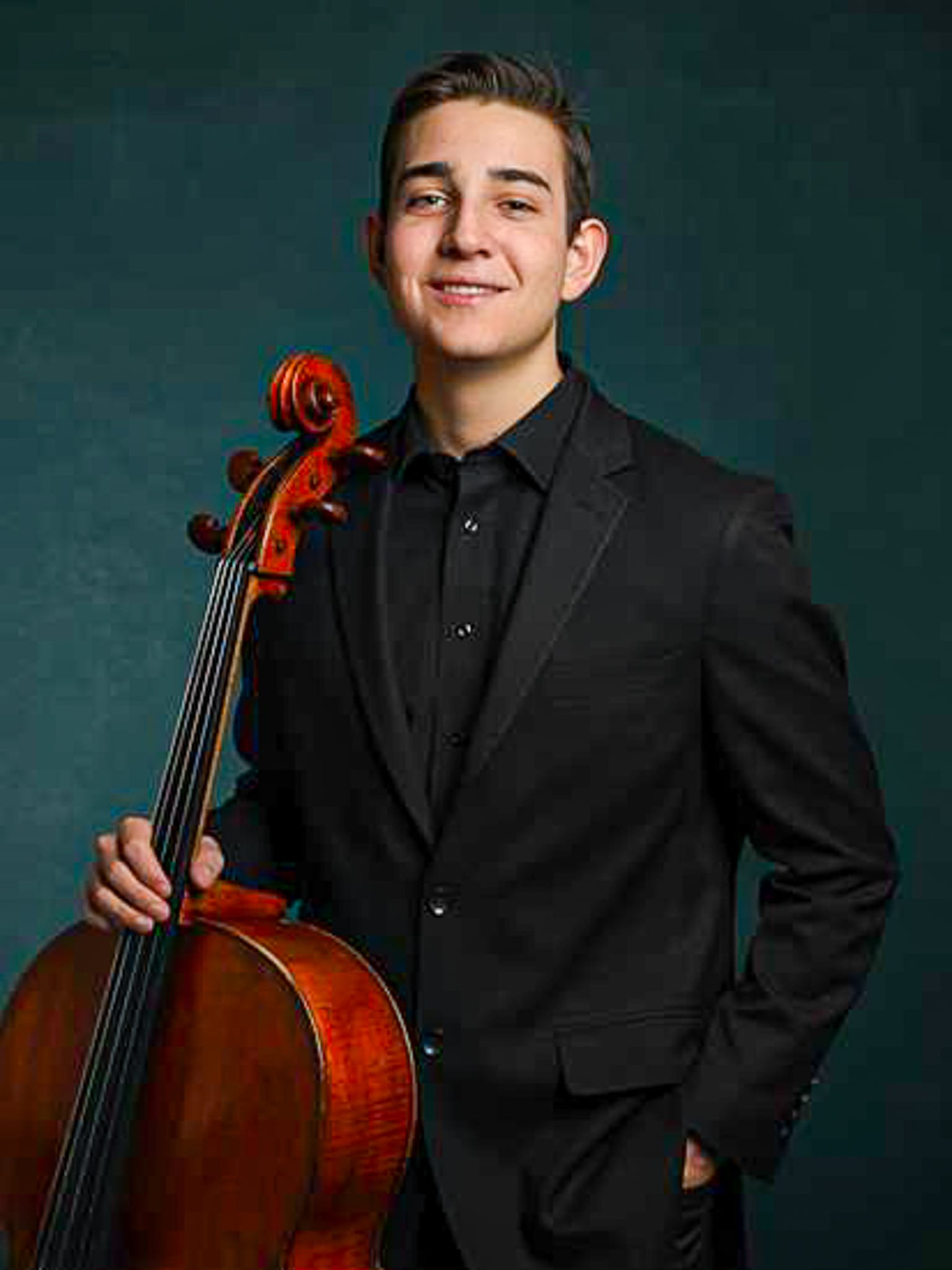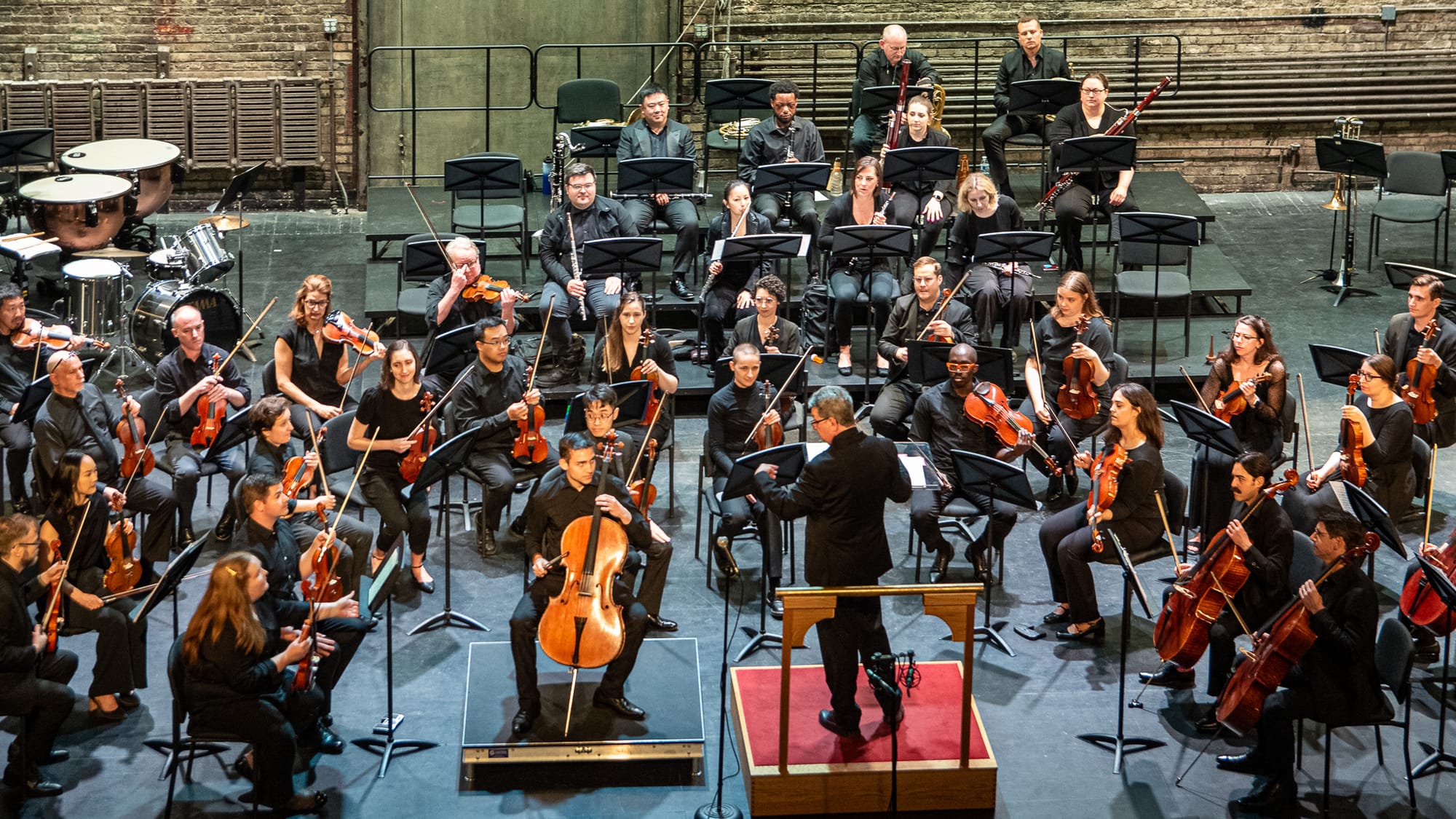Lakeview Orchestra Serves Up an Afternoon of Eclectic Adventure and Fun

Performance Details: Sunday: April 14, 2024, 2:00 PM, Athenaeum Theater, Chicago, Illinois.
Under the baton of guest conductor Jeffrey T. Parthun, Sr., Lakeview Orchestra provided a romp through a variety of the familiar and not so familiar, to the delight of the audience who had ventured indoors at the Athenaeum on one of the first really Spring-like days Chicago has seen for some time.
JEFFREY T. PARTHUN, SR., has recently retired from a forty-year career as a public school music conductor; in addition he has conducted ensembles at Purdue University, composes and arranges for a variety of ensembles, and is an experienced adjudicator. I also note that in his biography he studied conducting and arranging under Northwestern University's John Paynter, under whose baton this writer once performed as an undergraduate at Northwestern. As I sat in the audience I couldn't help but notice the bond that existed between the Lakeview musicians and this conductor. It would appear that the broadly varied experience Parthuns brings to any musical table enables a rapid and productive working relationship formation—a vital prerequisite to effective music-making.

The musicians seemed to "lean into" the performance, following Parthun's direction with intense focus and responsivelnes that was almost joyful in its exemplification. It was not only a great auditory experience, but a fine visual experience, as well.
For an energetic and exciting opening it's hard to beat Dmitri Shostakovich's Festive Overture, with its triumphal brass fanfares. Clarinet Principal Richard Zili set the pace with a brilliant solo statement of the overture's breakneck first theme, echoed by the strings in an equally stunning tutti that lets one know just how much this orchestra's backbone musicians have really matured into a strong ensemble. Principal Horn Lindsay Brown presented the lyrical second theme solo with his typical musicality and technical command.
As conductor Parthun announced, it was "something different" that continued the varied and satisfying performance. Lakeview's Young Artist Concert Competition winner, eighteen-year-old Jan Vargas Nedvetsky, took center stage for his performance of the difficult and yet sensitive Variations on a Rococo Theme by Pyotr I. Tchaikovsky.

The piece is physically demanding, and offers only infrequent periods of orchestral interlude that provide the soloist with much needed rest, especially given that much of the solo is written in the upper register of the instrument, requiring that the musician play in the so-called "thumb" position, far down on the fingerboard of the instrument. Add to this the occasional need to play "false harmonics," another technique that tests the musician's command of solid technique and musical sensitivity, and you have a truly excellent showcase for both technical virtuosity as well as musical taste and sensibility.
Nedvetsky played as though there were nothing out of the ordinary in what he was showcasing. He had escaped all the traps effortlessly, as though they didn't exist. Watch for great things in store for this rising young cello virtuoso.
The concert continued with Johann Strauss, Jr.'s Éljen a Magyar polka, including the nearly obligatory shout Éljen in the closing moments of the piece. This was followed by selections from Carmen, Suite No. 1, that hardly needs introduction to classical audiences. The second half of the concert opened with the Polonaise from Tchaikovsky's Eugene Onegin.
The final three selections on the program definitely started to veer off into territory that is "something different" for Lakeview audiences. While most can probably recognize the Vaughan Williams English Folk Song Suite, what they may not realize is that it was originally written for Military Band (what we would call a "Concert Band" in the US, e.g., that includes woodwinds in addition to the brass and percussion.) The orchestral transcription is well known, however, and was an appropriate "folksy" choice for a concert of serious fun.
This was followed by British composer John Powell's music from How to Train Your Dragon. I suspect that any Dragon Lords in the audience were satisfied that their interests were not ignored.
The concert program concluded with the fourth movement of the Johnny Richards jazz suite originally written for the legendary Stan Kenton: La Suerte do los Tontos. This transcription for symphony orchestra makes a few changes from the original, by cutting the solo jazz breaks and transcribing the stratospheric trumpet parts to the violins. (Alas, we no longer have Maynard Ferguson in our midst!) But it preserves what the program notes referred to as "the huge, grooving percussion battery... drum kit, timpani, bongos, maracas, claves, timbales and... cowbell." This piece is an exploration of the Afro-Cuban rhythmic pattern called "nanigo." Nanigo is an intricate 6/8 pattern and in this case, combined with Richards' harmonic and melodic structures to produce what is undeniably a masterpiece of the jazz idiom. And of course, it provided much opportunity for the "huge, grooving" Lakeshore battery!
It was an amazing way to end what turned out to be one of my most memorable events of recent years. Bravo, Lakeview!
For more information about upcoming Lakevew concerts, visit their website:
Lakeview Orchestra

